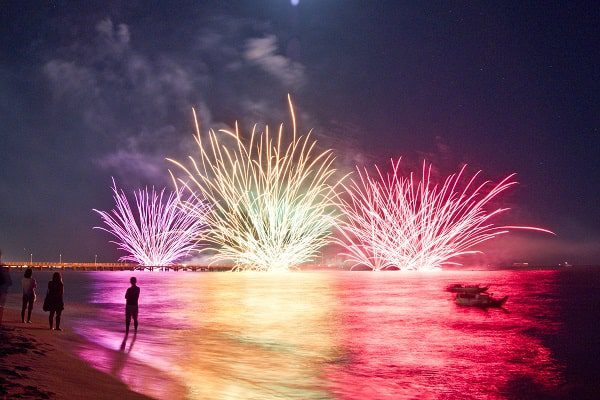|
Getting your Trinity Audio player ready...
|
Where there are fireworks and hot grills, there is always the possibility of being burned. This is why July 4 is a busy time of the year for the staff at the Burn and Reconstructive Centers of Florida at Kendall Regional Medical Center in Miami.
As the #1 Burn Hospital in South Florida, Kendall Regional’s team strives to spread awareness on burn prevention and safety tips. Dr. Haaris Mir, the Medical Director of the Burn and Reconstructive Center, explains how injuries they see can range from minor to severe burns.
“From burns to traumas, we treat a variety of injuries around the holiday,” said Dr. Haaris Mir, the Medical Director of the Burn and Reconstructive Center. “However, so many of them can be prevented.”
In Florida, only sparklers and a handful of other small items are allowed under state law. However, Dr. Mir warns that these are still dangerous for children. He also advises that fireworks should be handled by professionals, but if shooting your own, make sure to mark off a shooting area that is off limits to children.
Here are some firework safety precautions:
- Ensure a fire extinguisher, hose or bucket of water is nearby.
- Make sure the “shooter” is sober, not wearing loose clothing that could ignite, and follows all directions on the fireworks label.
- If the device does not have a warning and/or instructions label, do not fire it
- Never use fireworks of any kind indoors.
- Light fireworks one at a time.
- Never throw fireworks — a malfunctioning fuse could cause the item to go off in your hand.
- Never light fireworks held in someone’s hand.
- Never stand over an item that does not fire.
- Remember that fireworks, especially sparklers and smaller items that stay on the ground, are still very hot, and therefore dangerous, after they have been used.
Staying safe should also extend to the grilling area,. Before lighting the grill, Dr. Mir recommends checking the connections of the gas lines to ensure that there are no leaks. The best way to check for leaks is to spray soapy water on the gas line connections. If you see water bubbles, there is a leak.
When you are ready to light the grill, make sure to keep the lid open, and never use gasoline to help fuel the fire. “That’s a quick way to cause a burn injury,” Dr. Mir explains. “I have treated many severe burns from grill explosions.”
Other grilling tips include:
- Use grills only in properly ventilated areas, as the risk of carbon monoxide poisoning and fires increases if grilling in an enclosed area, such as a garage.
- Do not use an accelerant, such as gasoline, to light a grill, campfire or debris pile. Gas fumes can ignite and cause a large explosion.
- Dispose of hot coals properly: Soak with water, then stir and soak again to make sure the fire is out.
- Always shut off the propane tank valve when not in use.
- Never try to light a gas grill with the lid closed.
- Always wear short sleeves and/or tight-fitting clothing while grilling.
- Use utensils with long handles to stay clear of hot surfaces.
Even with these precautions, burns can happen. If you do get burned, there are some simple steps you can take to initially treat a minor burn. First, rinse the area with room temperature or cool water. Do not use ice or very cold water. Do not apply butter, mustard, oil or toothpaste. Apply an antibiotic ointment to the injured area and keep it covered with a clean, dry gauze. -For severe injury, call 9-1-1 or go to your closest emergency room.
For more information, call 305.222.2200 or visit KendallMed.Com/Service/Burn-Care.






